

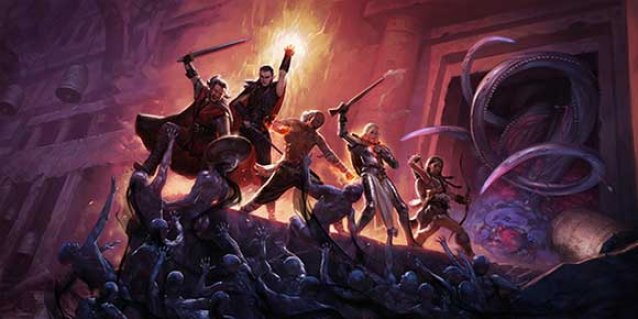
It's 1999. I've played Planescape: Torment, an eye opening D&D dungeon crawling experience. I can't possibly imagine a better game. But then a scarred blue man set against an orange background calls for my attention. As I move closer to this cardboard box, I notice the familiar Black Isle logo. My excitement grows.
It's some hours after this. Having convinced my older and only brother to buy this game for me, I'm installing it. The manual describes that my experience will be a bit different from other video games. See, the main character in this game is immortal.
I've woken up at a morgue, the Mortuary. A flying, talking skull introduces me to this place. I can't remember who I am. As I explore this place, I notice a Dustman, a cloak wearing human with a passion for rigor mortis. And then I am given an option I never had in any other game I had played before. I can attempt to snap this Dustman's neck instead of attacking him head on.
I attempt it. I succeed. He's dead, and no battle rolls were cast.
I immediately wheel in my chair and describe this encounter to my brother, beaming at the possibility of affecting the game world strictly via the dialogue box, somehow amazed that such reactivity was possible in a video game.
Fast forward to 2013. I am sitting next to Chris Avellone, Lead Designer for Planescape: Torment and responsible for my experience 14 years ago.
----------
[Geraldo] Some 14 years ago I'm reading this text, I'm playing this strange grey character, and he's woken up in the mortuary and he has a chatty chatterbox and all that, and I'm just exploring, and I get the option to snap this guy's neck, attempt to, and it works! And I never played a game that allowed me such a thing. Then skip forward 14 years, and I'm interviewing one of the person's responsible for that, maybe, I don't know who wrote that line, possibly you, that's pretty great.
[Chris] I did in fact write that line. I believe it does a Dexterity check. To see if you do it fast enough.
[Geraldo] Yeah, so it's an honour to meet you and to have this chance to do this.
10 years of Obsidian Entertainment, I noticed the anniversary. So what were your expectations when you founded it, what were you guys looking for?
[Chris] Our expectations were to carry on the type of roleplaying games that were done at Black Isle and sort of break away from the larger studio that was having difficulties at that time. I think Obsidian did a good job with that in terms of being able to do a wide range of RPGs including doing Dungeons & Dragons' games which we'd been doing at Black Isle at any event.
I think, however, with Eternity and Kickstarter, that's allowed us to return to our absolutely purest roots so I feel that things have come full circle in an absolutely wonderful way.
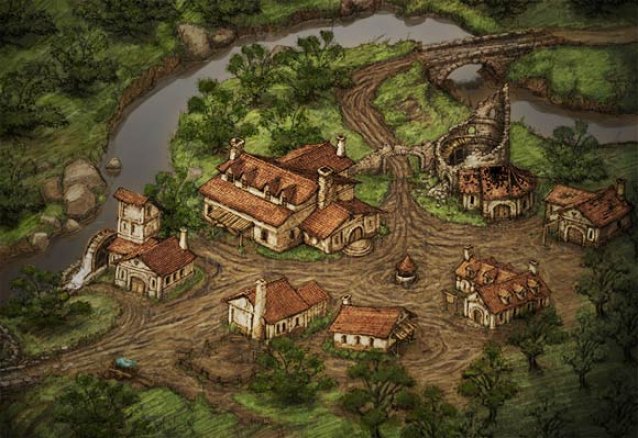
[Geraldo] For the future, it's Eternity, what do you see beyond Eternity?
[Chris] We'd like to do more games in the Eternity universe. We have the expansion plan, we'd also like to be able to do sequels to the franchise if the initial one sells well enough.
Also we'd like to branch the Eternity world to books and comics and other forms of media as well. That's worked really well for BioWare and a lot of other companies including inXile.
We'd like to, we still talk to publishers, we still do games for publishers, we wouldn't want to necessarily be exclusive to Kickstarter but if we can make our own funding and finance ourselves that's kinda the route we'd like to go down.
[Geraldo] You already touched on this on some of the sessions but how have been the experiences contributing to three different games, more or less at the same time, so Wasteland 2, Torment: Tides of Numenera and Project Eternity?
[Chris] The way it was structured was Wasteland 2 came first and I actually finished the design work for that late last year, so I was able to roll on to Eternity full time for that. And then with Torment the workload is much lighter than it is on either Eternity or Wasteland 2, and I've been able to do that at night and during weekends on my off time.
[Geraldo] You got a lot of reading to do, right?
[Chris] It is a lot of reading at the outset but that's important for things like understanding the themes, understanding the world, making sure you understand all the combat and conflict mechanics that are in the game then make sure the characters and the companion I've been writing actually kind of respond to all of that stuff. I had a lot of ideas for companions in that universe but until I understand everything about the areas, the overall quest lines, the subquest lines... I want the companion to be able to feed into that and make all of those things stronger.
[Geraldo] Do you think Torment fans will be very happy?
[Chris] I think they'll be very happy and I think that they also have the Numenera team, aside from Monte Cook, who, you know, worked a lot on Planescape, Colin who worked a lot on PlaneScape and the computer game, and then Kevin Saunders whose Project Lead. Kevin headed up Mask of the Betrayer, first expansion to NeverWinter Nights 2, and that game felt, many people commented 'this feels like a more modern adaptation of Torment', really strong characterization, really strong dialogues in an unusual setting of the Forgotten Realms so a place where they've never been in that sector of the world and thank God for that. I think it's in good hands and they're gonna be happy.
[Geraldo] So, those companions, like in Mask of the Betrayer, Gann-of-Dreams, will we be seeing something like that?
[Chris] You'll be seeing the same level of depth and interactivity. I felt that those characters had the same range of interactions as the ones in Torment. And I think that's a good bar to shoot for and I think that Colin and Kevin and I understand that.
[Geraldo] That's great! What's it like to work with such a large pool of writing talent cause you got all the material you read for Torment and the rest of the writers of Wasteland 2?
[Chris] It's been really interesting, I read through all the dialogues in Wasteland 2 and I think there's gonna be a lot of really cool quests and really cool moral choices in that game. And also on WL2 I had the opportunity to work with a bunch of new writers that I hadn't worked with before, there's usually a whole bunch of narrative designers of a pool that I'm used to from Obsidian, but being able to see the additional talent that inXile brought to this stage, working with those guys was really interesting because they brought fresh perspectives to this stuff, I think overall to improve the quality of the narrative design and also the quality of the writing and some of those guys are moving to Torment as well so that's a good thing.
Also with Torment, the writing bar, the writing circle is even larger than it's ever been in any game I've worked on and then having Pat Rothfuss from a novel background on it, that's fantastic, and he seems like a really brilliant, clever guy. And then there's Brian Mitsoda from Dead State, and who made the Vampire (Bloodlines) game that had amazing NPCs and then Mur Lafferty, Tony Evans, George Ziets who I've worked with a number of times, he's great, he edited up all the writing and was the creative lead for Mask of the Betrayer, he did a great job. I'm just really looking forward to it, I think it's going to go really, really well. *chuckle*
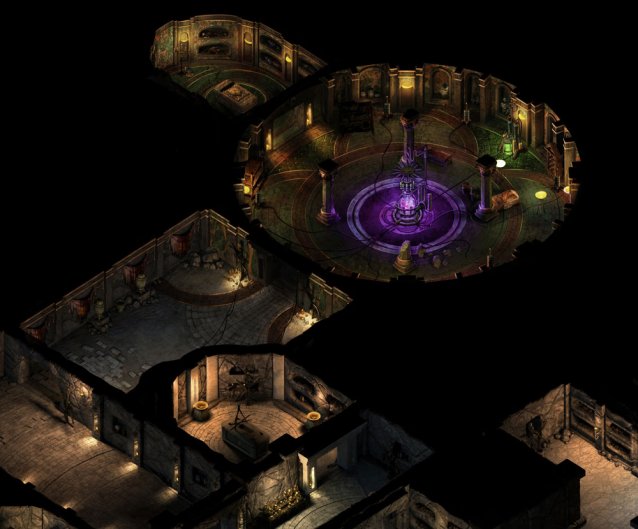
[Geraldo] Going more into tech related to the dialogue pipeline, we already saw in the (Project Eternity) session some stuff, diagrams and all those annotations, so the question is just, I'm assuming you guys have a toolset to bring that into Unity, do you actually handle the editor or do you just write and then someone just...?
[Chris] No, all the writers they actually write in the editor. The way it works is, even though we couldn't use the Onyx engine, which is our internal engine, we were able to take the dialogue editor out of Onyx and apply that to the Unity set so all the writing styles that we're used to with Onyx we're actually able to do in Unity now, so having access to that dialogue editor, it's really easy to write in, it's probably the easiest editor to write in of any of the editors that I've worked on which is fantastic. So yeah, we're all responsible for implementing our own writing.
On Wasteland 2 is a little bit different, the designers write the script but the implementers are different, it just depends on the company.
[Geraldo] That's pretty cool that you get to implement the dialogue directly.
[Chris] Yeah, and then you can fix all the issues with it and run through it a few times until it feels right for you. Cause sometimes when you pass it off for someone else to implement, they don't know all the nuances of what you're shooting for, I just think the more familiar that you get with the toolset that implements the content, the better your work's gonna be.
[Geraldo] Yeah, because there's this fear where someone does an asset and then someone else is going to implement it, but with this case it's not like that. [Chris] Yeah I think whenever you have a system like that there's a danger that there can be some miscommunication, completely unintentionally, that ends up with a totally different result. If you don't have time to go back and play through and understand what you did when you implemented it it's a little bit harder to fix.
[Geraldo] Is there any facet of your game writing, you already told you have a pretty good dialogue editor, but imagine you had an infinite amount of engineers to work on new tool, can you think of something that would help your job tremendously?
[Chris] Well one thing that I think could be really interesting is, I don't know if we'd use it for an Eternity style game, but the ability to dictate dialogue nodes and then have those be filled out as you're writing could be kind of interesting, especially with voice acted games, you have to say the line out loud anyway when you're writing, it's important.
Also, this sounds strange, but having a dialogue editor that you can take portably anywhere, cause right now you have to be linked into the network and be able to access the toolsets from there, I would prefer the ability to have a small thing to just have in the laptop, type up a dialog conversation and then easily import that back into the main game. There's some editors in the past that have allowed for that, but the ability to do that would be kind of nice.
I don't know I guess I'd have to give it more thought, I don't think anyone has ever given me that offer before. *laughs*
[Geraldo] You touched on this as well (storytelling session), talking about procedurally generated content producing meaningful stories, and decisions taken by the AI, for example a faction taking control of an empty kingdom, while the engine generates random dungeons and NPCs and stuff like that, can you imagine a way to imbue those randomly generated things and AI maneuvers with meaningful story and add something to it?
[Chris] Yeah, it was what we tried to do in a very simplistic way with the Modron Cube in Planescape. We had certain set pieces like the boss battle's location, but we're able to give an overall premise for why this location exists, why it's meaningful and derive meaningful story rewards out of a system like that, even if the context of the dungeon is a randomly generated dungeon. And I think a number of campaign settings have created dungeons like that, like Castle Greyhawk in the old Greyhawk campaign setting. It was a completely insane castle but there was a reason for why it had all this insanity shifting around, and then Halaster's Undermountain Dungeon, in the Forgotten Realms, is also a series of random dungeons you can create like that and it makes perfect sense for why that dungeon exists, what the premise is.
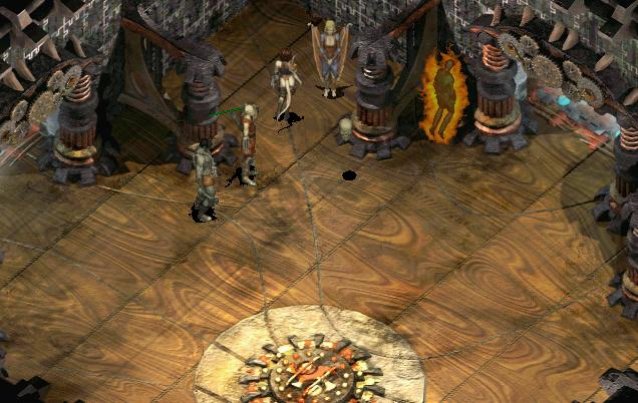
And then when we did Old World Blues, for Fallout New Vegas, the premise was completely insane, but there was a reason for all that insanity that allowed people to build just about anything they wanted to and play around with the props and the tilesets, just because the narrative design dictated "here's why this crazy location exists", and it makes a certain kind of sense and mostly just allows you a lot of freedom to do stuff.
[Geraldo] But I think that's more from the perspective of having the opportunity, from the outset, to tell "ok, this is the reason this is like this" but I was thinking of just having a system that would give descriptions to something out of randomness, having the writers input something, do you think that is possible, do you think that you would lose authorship?
[Chris] I think that would allow for some interesting stories to be told I do know if we did have a randomly generated system like that, which we're not planning for Eternity, we'd have to have some set of bookends for that random generation in terms of what creatures would respawn at what location and have a range of that stuff as opposed to just completely freeform spawning. But I think there's a way to set that up with a lot of freedom but at some point there would need to be bookends.
[Geraldo] Do you think we should be moving to newer technologies that help us create stories, that emerge from these systems that we've mentioned, instead of mapping out the whole tree, do you think the technology for dialogue writing is still the same or are we advancing?
[Chris] I think the dialogue editor always limits the dialogues that you have. I feel that when you write a game in the Neverwinter editor for example, that's much different than writing a dialogue in the GECK and then much different dialogue than we wrote for New Vegas, ultimately the dialogue editor makes some types of conversations more possible, while other dialogue editors make a certain flow of a conversation harder to do.
I think we should always be looking at new technologies to implement conversations, and especially how that is displayed on the screen, cause while the menu options for dialogues which is, you know, very Infinity Engine, very Fallout, that serves a purpose and there are some positives to it, overall I think that there's more room for experimentation for things that you can do with dialogue editors, we should always be looking for stuff like that.
[Geraldo] So thinking of Alpha Protocol as one step, do you think of what could be the other step?
[Chris] The step would not be removed from the game. So the reason the Alpha Protocol system was the way it was was because we wanted that urgency, we wanted that drama, we wanted you to feel like spy, we wanted you to feel like you had to think on your feet, while you were talking to everybody in a conversation and that's because it was an espionage RPG, that was the driving force for that system.
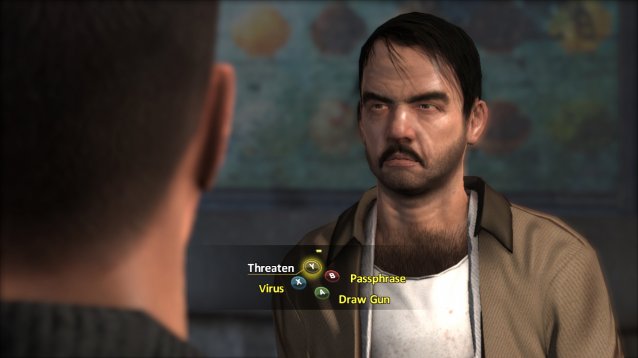
The idea with the dialogue advance would be, we would want to explore dialogue tools that enforce the theme and ambience of the game that they're being used for, that would be a big part for it.
In terms of developing independently in a vacuum, I don't know if I'd have a good answer for that, (with all the cons of) whatever game that we're trying to make.
[Geraldo] Alright, so can I just ask for your opinion on the systems that Bioware uses now? So Dragon Age, the wheel, that line of dialogue that doesn't really match what the person says?
[Chris] I don't mind the dialogue wheel, it works, and also I think it works better with the controller in some fashion, in terms of choosing options, it's a lot easier to get to certain subjects based on the thumbstick when you have a radial like that. The two issues you have with that are, if you spell out the entire line, and then it shows it, and they say it, that sort of wastes player time, but then when you have just the topic points that you're choosing, and then the player says something in relation to the topic, you have the issue like what you were talking about, and then it's not exactly like you imagined that topic being asked about but I think that's a much lesser evil than doing the "I read the whole line, I hit the button, I say the line", I just get tired, I just get exhausted.
[Geraldo] Is there a future for RPGs that are different, so have we hit a ceiling, what do you think?
[Chris] No, I think all types of RPGs are possible, just a lot of the samples of games that I saw at Rezzed, I could see a lot of those having RPG elements added to them, like the one game, I think it's Tengami, where you go through the Japanese pop-up storybook, I thought it was awesome, there's no reason you couldn't set an RPG in that universe, I think that game Journal was much the same way like almost all of the Rezzed games that I've seen I can see ways of adding RPGs elements to them, it's just a matter of finding the right hybrid that works for both the systems and the actual gameplay being presented but I don't think there's a ceiling at all.
[Geraldo] Games inspire your writing, you mentioned Walking Dead a lot, but what about upcoming RPGs that aren't the ones you're working on? Can you think of anything? What are you looking for?
[Chris] Ones that I've played recently, obviously, not RPGs, I really enjoyed the conversations in Walking Dead, I got really emotionally invested in those, I thought the moral choice points were excellent and then it took one of my hated game tropes which is escort mission, escort mission for a child, and then with Walking Dead they actually made it fun and made it interesting and added a lot of depth to it, so much I actually cared about it, and I enjoyed Bioshock Infinite but in terms of RPGs coming up, I guess I've been so focused on Eternity nothing immediately jumps to mind, I know that we've backed a number of RPGs that look promising, I think there's one, it's like an RPG survival game that I've recently backed and then also we backed, I believe... Ah, I'll have to check. (The game is Forsaken Fortress)
[Geraldo] This (one) is from a lot of budding game designers, so it's just the classic, how do you become a game designer? Do you have to start from somewhere else, how does it happen?
[Chris] There's a lot of different routes that you can take, the best thing to do is just be a game designer first. If you really enjoy the job, don't let anything get in your way, there's plenty of toolsets to create content for games that you like, go ahead and use them. Go and use Unity, like those programs aren't hard to figure out, and there's a community around each one, like mod makers and the Unity community, reach out to them, understand how it all works. Even get involved with indie development or even volunteer for a Kickstarter you like.
Sure you may not get paid upfront but the important thing is build up your resume, build up your portfolio, like imagine what would have been like if you had the chance to volunteer for FTL. And then that was on your resume for all time, that's a fantastic game to have on your resume. Basically just do the job before you get the job and there's plenty of ways to do the job out there for free.
[Geraldo] Well, we talked about writing for comics, so what's the greatest challenge writing a game compared to writing static stories?
[Chris] Actually, so writing for games is a lot more difficult, because you are basically telling anywhere from three to six different ways the NPC can react to you, so you're actually like writing almost three different comic books or six different comic books, scenes for each character that you interact with, not to mention how the plot can arc. So usually when I've written comics or when I'm writing short stories and novellas it's a lot easier to focus and choose the one path and then you go from there, but the nice thing about games is I can explore all the paths that come to mind and see how they would play out and so in some respects that's more fun because you can explore all the potential ways the story could have developed rather than just this one that you're putting in front of the reader.
[Geraldo] In Torment, do you feel there was a dissonance between the visual representation of female characters and male characters, sure the Nameless One is pretty much naked, but the rest of the male characters, they had armour and all that, but the female ones weren't so much covered, do you think there was any of that? What I'm trying to get is if there is a way for a writer to input to the art team?
[Chris] Sure, generally we allow the art department to maintain its vision and the writers maintain their vision, the design maintain their vision and empower everyone to develop the game from their department. That said we did try and have characters that would have normally been naked versions or overly sexed up versions of those characters and then we made a conscious effort to reverse them, and that was a specific request from design, that you know it's very important that Fall-from-Grace not be the typical succubus, and here's the reasons why.
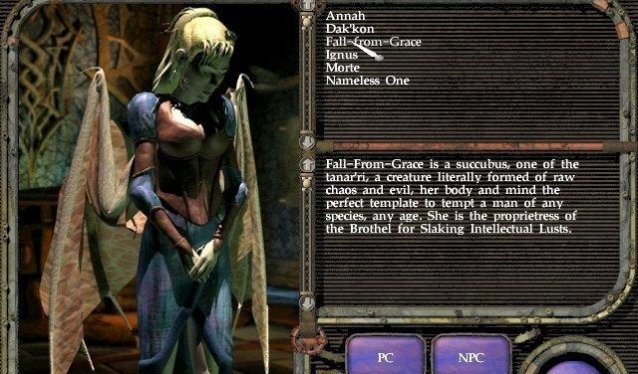
And our character concept (artist) and modeler totally got it, he's like "yeah, I read the description, I get exactly what you're looking for, let’s go from there", and like you were saying, while there are some parts like the Nameless One who's always completely naked running around and there are some female NPCs that have the same issue, we did try and do reversals when possible but there you go.
[Geraldo] Now going into some funnier questions...
Will we ever see Gann-of-Dreams again? I really like this character.
[Chris] I don't know, that all depends on Hasbro and Wizards, I certainly enjoyed writing that character I thought it was pretty great. I'd like a bit more freedom to develop that character but yeah I really enjoyed writing him.
[Geraldo] Particularly the performance of the voice actor was really well done.
[Chris] Yeah the casting agency we used did a really good job with him and Kaelyn and I just thought they did a good job with the cast in general.
[Geraldo] I liked that it was less companions but all of them were very strong and very compelling.
[Chris] Yeah, that's one of the reason people compare it with Torment in the sense they didn't have the huge range of companions that Neverwinter 2 did, but because they were smaller, they felt there was much more to them, we just had more time to develop them. And also they really tied into the storyline and what was going on so that helped as well.
[Geraldo] You probably can't discuss this as well but what if Disney offered Obsidian the chance to do Knights of the Old Republic 3?
[Chris] We would love to do Knights of the Old Republic 3 in any fashion.
[Geraldo] Bethesda, Fallout 4, they're not going to hire, they're not going to make a contracting thing?
[Chris] All of the Fallout stuff is totally up to Bethesda, while we would love to do another Fallout game again that is totally up to them.
[Geraldo] Do you still hate Arcanum?
[Chris] I really like the ambience of the world, I really like the characters, I really like the quests I've been on, I feel the conversations are really clever. I really like the art style as well as the animation. I am not a fan of the interface, I think the interface is absolutely beautiful and terrible at the same time and I felt the Fallout 1 interface was absolutely beautiful and terrible at the same time as well. I was actually at an Australian conference where someone called me out and said "Hey I don't mean any disrespect to this Chris but like your design for the Fallout 1 interface was terrible" and I'm like "I didn't design the Fallout 1 interface!" but I understand all the problems that the presenter had with it.
[Geraldo] Bonus question: you didn't have any involvement with Fallout 1 right, but with characters from Fallout 2, like Cassidy, is he meant to be Tycho's son or something like that?
[Chris] No. He sort of shares a similar model, he was mostly there because we wanted to do another companion in this location, and I was like, well I don't want to really do another talking head, I already did a lot with Myron, how about I do a much more simpler, just fun combat character, Cassidy, the gun-toting bartender, sure. *laughs*
[Geraldo] That's all of the questions I have. It's been great to have the chance to interview you, it's not something I thought would be possible, thanks for being available.
[Chris] Thank you very much for your questions, I really appreciate them.
----------
And then he went off into the sunset, as the Rezzed show came to an end.
If you saw the Rezzed Project Eternity session you'll notice there was no Q&A. Well, shortly after Rezzed was closed for the day, Chris Avellone was at the pub participating in a very impromptu Q&A, and it was fantastic. Fans would come around and ask questions or express their love for Alpha Protocol.
It's not everyday that you get to meet your favorite game designer and writer. Having a chance to sit down and ask some questions to Chris was a fantastic opportunity, something I never expected to happen, so I have to thank Chris Avellone, firstly for coming to the UK to talk about Project Eternity at Rezzed, this cozy, fun and very indie game expo, and second for being available to do the interview.
Updated my journal.

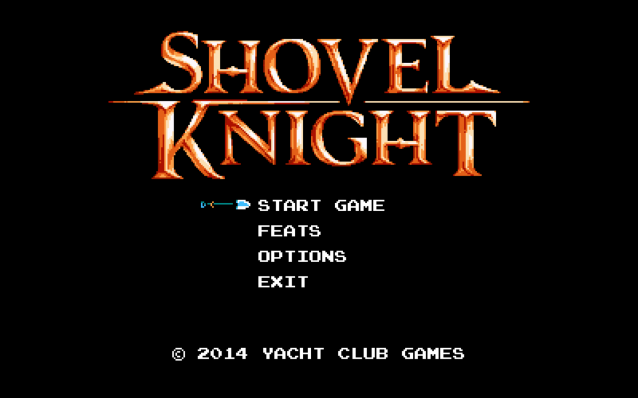
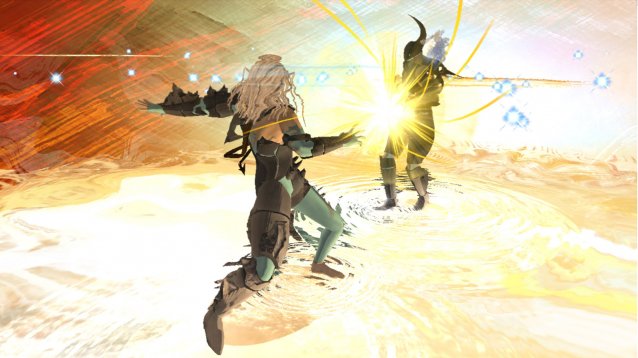
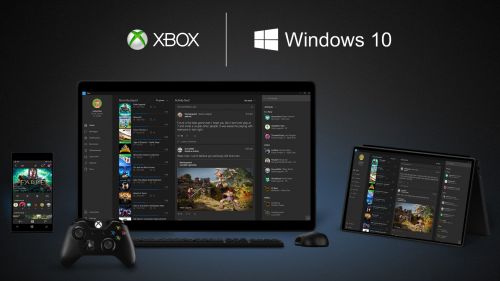
 What Can We Learn About Managing Our Schedules From Santa?
What Can We Learn About Managing Our Schedules From Santa?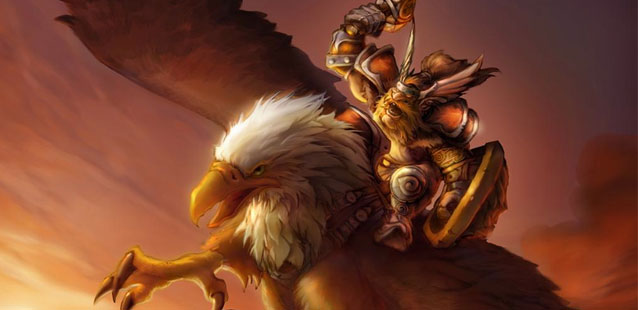 What We Want To See in World of Warcraft 2
What We Want To See in World of Warcraft 2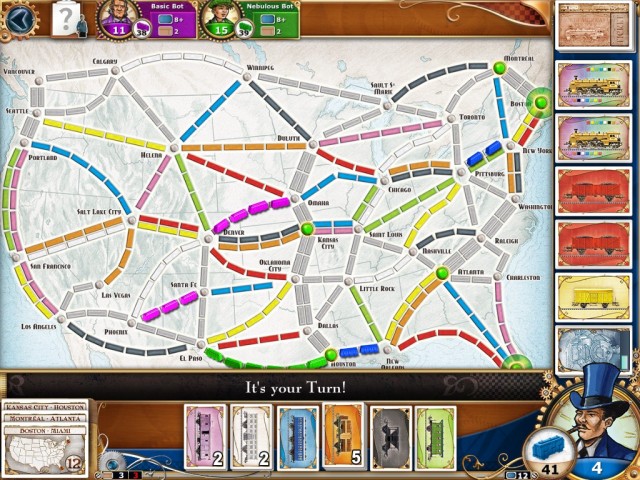 5 iPad Family Board Games for Christmas Afternoon
5 iPad Family Board Games for Christmas Afternoon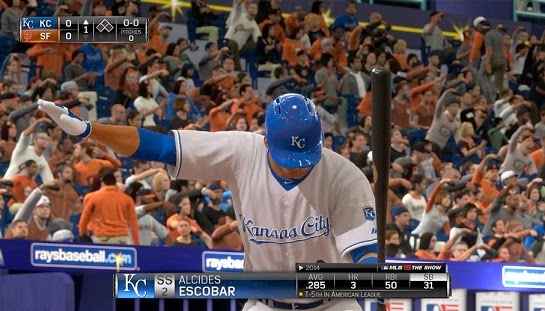 MLB 15: The Show PS VITA review
MLB 15: The Show PS VITA review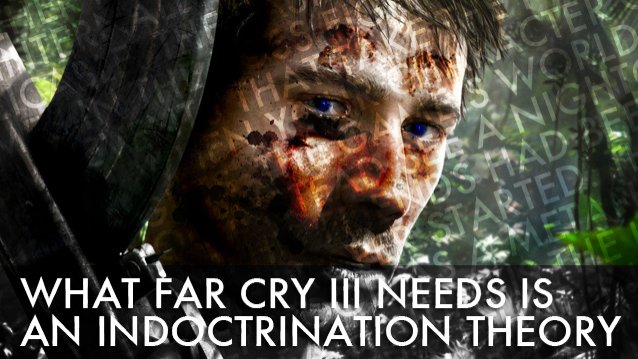 What Far Cry 3 Needs Is An Indoctrination Theory
What Far Cry 3 Needs Is An Indoctrination Theory